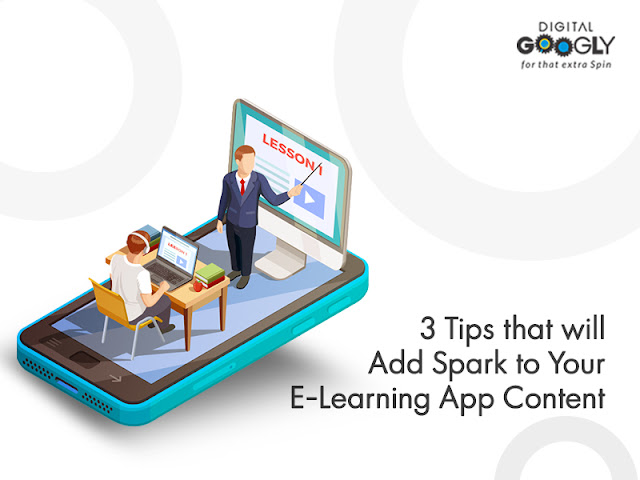When we speak with clients about what they want in a custom educational or e-learning app, the phrases "engaging" and "interactive" content come up frequently. While we agree that these are excellent descriptors, different people will interpret them differently. You probably have a good sense of what they mean to you right now. There are numerous methods for engaging students. Some go into depth on adult learning theory, while others are simple techniques to make a mundane interaction more interesting. Let's face it, none of us wants to be clicked into oblivion!
Learners aren't really engaged by pretty visuals and bulleted lists
How much of
your e-learning is made up of the dreaded PowerPoint-style slides? You hear a
narrator read the text on the screen and then go on to the next slide to answer
a multiple-choice question on the list you just saw. Have you fallen asleep
yet? Who wants to read a boring educational app content?
Three tips to spice up your educational and e-learning app content
Tip 1: Use sliders and dials
Sliders and
dials are an excellent method to get out of the rut of clicking each tab,
button, or image to learn more.
To describe
items or terms, use a slider. Let's imagine you wish to highlight
the significant changes in compliance legislation. For those important
dates, make a timeline with a slider and text popups.
To
demonstrate progression, use a slider or dial. Maybe you're putting together a
course on the plant life cycle. The learner can view photos of the plant at
various phases of development by using a slider or dial.
You can display each item or word in a pop-up window, a separate layer, or even an audio-enabled slide.
Tip 2: Make use of labeling and sorting
True or
false, matching, and multiple-choice knowledge checks can all be replaced by
labelling and sorting. They employ images to promote student participation
during the learning process. Labeling and sorting can be utilised in a variety
of ways while developing content for the best learning app.
Increase the
number of people who use your product by using labels. Assume you're
instructing someone on how to operate a piece of machinery. Label the parts of
the equipment that your student will interact with and use labels to
demonstrate or test them.
To test
knowledge, make a sorting task. Assume your course is intended to teach
salespeople about the characteristics and benefits of a new product line. Match
different features to certain products with the help of a sorting activity.
Tip 3: Include Audio Reviews
Inclusion of
audio is a popular way for content developers to increase activities in
their unique e-learning development. This might include sound effects or music,
both of which are excellent, but using multiple voices boosts interest.
In a case
study, use character audio to allow a character to narrate their own
story. To break up the monotony of one voice, switch narrators for your educational app’s visual content.
Subscribe by Email
Follow Updates Articles from This Blog via Email


No Comments